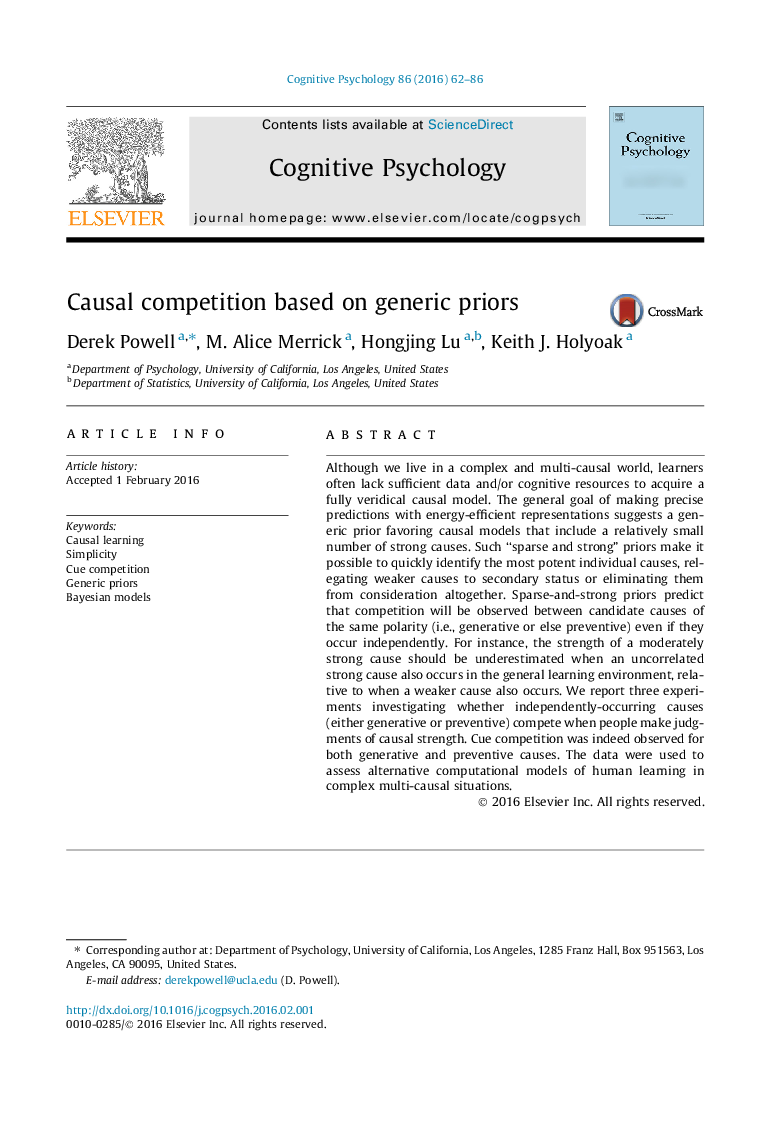| Article ID | Journal | Published Year | Pages | File Type |
|---|---|---|---|---|
| 7272773 | Cognitive Psychology | 2016 | 25 Pages |
Abstract
Although we live in a complex and multi-causal world, learners often lack sufficient data and/or cognitive resources to acquire a fully veridical causal model. The general goal of making precise predictions with energy-efficient representations suggests a generic prior favoring causal models that include a relatively small number of strong causes. Such “sparse and strong” priors make it possible to quickly identify the most potent individual causes, relegating weaker causes to secondary status or eliminating them from consideration altogether. Sparse-and-strong priors predict that competition will be observed between candidate causes of the same polarity (i.e., generative or else preventive) even if they occur independently. For instance, the strength of a moderately strong cause should be underestimated when an uncorrelated strong cause also occurs in the general learning environment, relative to when a weaker cause also occurs. We report three experiments investigating whether independently-occurring causes (either generative or preventive) compete when people make judgments of causal strength. Cue competition was indeed observed for both generative and preventive causes. The data were used to assess alternative computational models of human learning in complex multi-causal situations.
Related Topics
Life Sciences
Neuroscience
Cognitive Neuroscience
Authors
Derek Powell, M. Alice Merrick, Hongjing Lu, Keith J. Holyoak,
